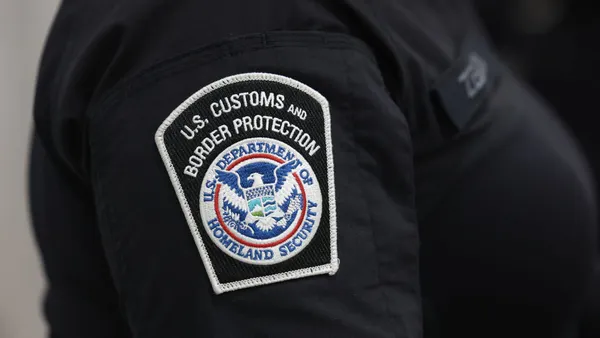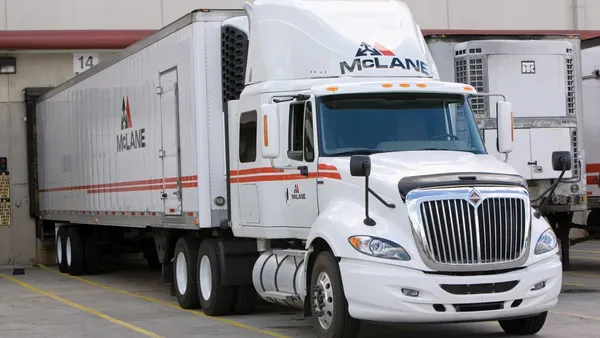Dive Brief:
- More than three-quarters (77%) of apparel, footwear and home textile imports from China into the U.S. remain on the list of tariffs set to take effect Sept. 1, according to an analysis from the American Apparel & Footwear Association (AAFA). These amount to $39 billion worth of goods.
- List 4B, for which duties are delayed until Dec. 15, covers 23% of imports in this category, totaling $12 billion worth of goods.
- AAFA's findings contrast statements from the Trump administration, which declared the delay in tariffs was "for the Christmas season" and to prevent duties on consumer products taking effect ahead of peak season. "Contrary to the headlines, the Grinch has stolen the Christmas selling season for our industry," AAFA President and CEO Rick Helfenbein, said in a press release.
Dive Insight:
The fourth tranche of tariffs, which covers $300 billion worth of goods from China at a rate of 10%, has garnered significant attention due to the range of consumer-facing products on the list. J.P. Morgan analysts estimate tariff costs for U.S. households would rise from $600 annually to $1,000 under list four tariffs, according to a research note emailed to Supply Chain Dive.
Footwear and apparel are particularly prominent in tranche four. According to J.P. Morgan, two-thirds of the product categories are concentrated in two industries: 1. technology and 2. consumer discretionary, which it describes as "Textile Apparel & Luxury Goods, Leisure Products and Household Durables."
The announcement this week to delay tariffs on "certain articles" led many businesses and consumers to believe additional time without tariffs would be granted on consumer products. Yet AAFA's findings show that's not the case, and the majority of clothing and footwear still falls on list 4A, meaning these imports will face duties at the beginning of next month. Some of these finished goods include coats, suits, pants, dresses, shirts, sweaters, gloves, ties and pajamas.
For businesses that import from China and have rallied against tariffs, the Trump administration's message has been, move production, or better yet, manufacture in the U.S. But even raw materials that could be imported from China and used for U.S.-based production are on list 4A. These include various types of cotton, yarn, woven fabrics and more.
J.P. Morgan named Under Armour, PVH (parent company of Tommy Hilfiger and Calvin Klein and more), Ralph Lauren and Nike as some of the footwear and apparel brands highly impacted by list 4A.
Despite tariffs, earnings calls and analyst notes indicate retailers are unlikely to make major changes to their prices. Surviving and thriving in the retail landscape requires staying competitive, so retailers are more likely to absorb costs through their supply chains or allow a slight erosion of margins than risk losing sales due to higher prices.
"We know from the earlier tranche of tariffs though that today’s customer doesn’t have much appetite for price increases," Macy's CEO Jeff Gennette said on his Q2 earnings call Wednesday. And Walmart previously warned the list four tariffs would lead to price hikes, yet on its earnings call Thursday the CFO indicated the retailer has in fact lowered some of its prices in the U.S.
Some retailers may also be banking on the hope that the U.S. and China will reach an agreement before the Dec. 15 implementation date. According to multiple news outlets, Trump is scheduled to speak by phone with Chinese President Xi Jinping "very soon."
"Given that full [tranche four] tariff implementation comes with a much higher cost for the US administration (i.e. likely significantly impacting the wallet of the US consumer / voter ahead of 2020 election), we believe there is a good chance they end up reversing their decision and finding a way to reach some common ground with Chinese negotiators," J.P. Morgan analysts wrote.













